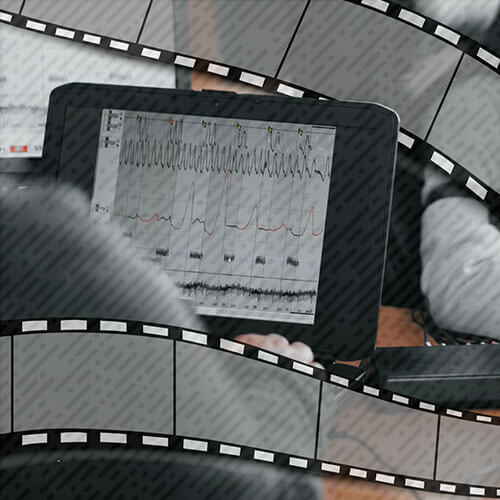
These days most of us have at least seen a polygraph machine, if not in person, then on television. In fact, you may even have seen our president and founder, Kendall Shull, appearing on shows like Couples Court with The Cutlers, Chrisley Knows Best, and Entertainment Tonight to perform polygraph exams. You may know what one looks like, but do you know where it came from? Suppose you have been considering taking a Polygraph in Knoxville, TN. In that case, you may be interested in learning more about the history of polygraphy and how it has changed over the years. Let's take a trip back in time!
It Was Never Intended as a Lie Detector
We often hear a polygraph machine called by the nickname 'lie detector' given its modern-day use to determine if a subject is telling the truth. However, the polygraph machine was not originally intended to be a lie detector! When you take a polygraph in Knoxville, TN, you will be hooked up to the device to record changes in bodily functions like breathing, heart rate, and perspiration. These can all be physiological indicators of lying but are also essential baseline readings in the medical field.
It was in medicine that the polygraph machine was first seen. Dr. James Mackenzie developed the first ink-writing polygraph machine around 1892 to track his patient's irregular heartbeats. It was a much simpler machine than those used today for lie detection, but some similarities can be recognized in these early machines. Rubber tambours would be attached at the neck and the wrist to record the pulse, translating the patterns to the recording arms. This was one of the first reliable ways to track a patient's heartbeat and played a crucial role in modern cardiology. It was short-lived and was quickly replaced with the electrocardiogram (EKG), but the polygraph endured in another form!
Measuring Physiological Responses
In 1895, an Italian Criminologist called Cesare Lombroso was the first to use a scientific instrument to monitor physiological responses. He modified an existing medical device known as a hydrosphygmograph and observed the changes in pulse and blood pressure while police questioned a suspect.
Moving forward to 1915, American lawyer and psychologist Dr. William Moulton Marston created a primitive lie detector that tested systolic blood pressure using a standard blood pressure cuff and a stethoscope to take readings during interrogation to detect deception. This test is still used in the modern machines used today for a polygraph in Knoxville, but it is now done automatically by the polygraph machine.
The Birth of the Polygraph
Canadian psychologist John A. Larson invented the first polygraph in 1921 while working for the Police in Berkeley, CA. His device took similar readings to Marston's but provided continuous readings. He chose the name Polygraph from Greek, meaning 'many writings' because it could read and record multiple psychological responses. The Larson Polygraph was the first device to continuously and simultaneously record respiration, blood pressure, and heart rate during police interrogations.
While Larson was the first to create the polygraph, it is another man who is often credited as the father of polygraphy. Leonarde Keeler patented a device in 1939, considered a prototype of the modern polygraph machines used today. In 1993, the polygraph officially entered the digital age thanks to a group of statisticians at John Hopkins University who created PolyScore. This software used mathematical algorithms to analyze the data collected by polygraph machines and estimate the probability that the subject is lying. Polygraph devices have continued to make technological advances over the years and have an accuracy of over 90%, but they still have a basis in those early devices.
Kendall Investigations
So, where does Kendall Investigations fit into the timeline? Kendall Shull began conducting polygraphs in 1991 while working as a Special Agent for the FBI in Washington, DC. He took over the role of Polygraph Supervisor and was eventually promoted to Chief of the entire FBI Polygraph Program in 1999. Ken remained one of the world's leading experts in the field of polygraphy and is the only person to have achieved a Master's Degree in the subject. He has been offering Polygraph in Knoxville, TN, since 2001, when he set up Kendall Investigations after a 25-year career with the FBI. It is said that a polygraph exam is only ever as accurate as the examiner is skilled. When it comes to Polygraph in Knoxville and beyond, only some can match Ken's skill and experience.
Uncover the truth!
--
Ken Shull served as a Special Agent with the FBI for almost 25 years and was head of the FBI Polygraph program until his retirement in 2001. At that time he set up the Kendall Investigations practice as a private investigator in Knoxville, TN offering Polygraph services, private investigations, and security guards. Ken is a member of the American Polygraph Association and The American Association of Police Polygraphists.
The Truth is Still the Truth Even if No One Believes it, A Lie is Still a Lie Even if Everyone Believes it.
